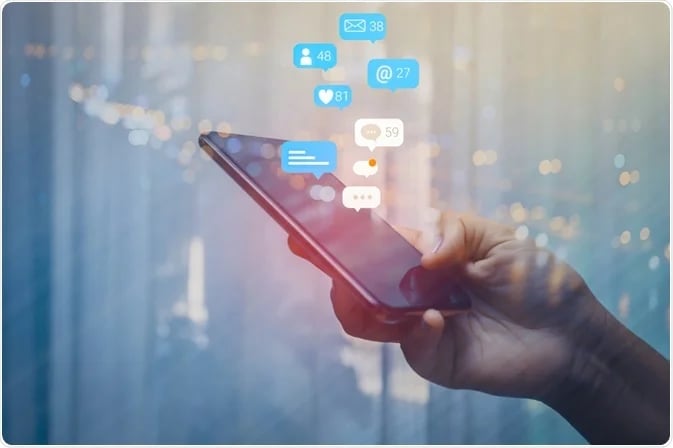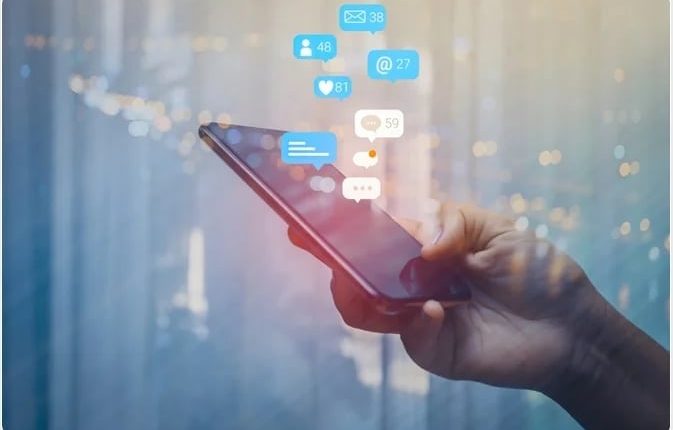Use of social media may be like riding a rollercoaster. Our attitude may change from getting likes to negative feedback in a short period of time. Social media kills our attention span and steals valuable time. Under worst-case conditions, it might affect our capacity to carry out daily tasks.
Conversely, we are social beings and our mental health and well-being imply connection implicitly. By means of a community of like-minded friends, individuals who are like us and with whom we have something in common, social media allows us to feel connected and to identify our niche. There has been argument over the advantages and drawbacks of using social media in relation to our mental health. The arguments of both sides are examined in this paper.
Social media’s perils for mental health
Many of us find ourselves mindlessly seated and surfing social media when we have some free time—even several hours. For example, the typical American spends about ten hours per day in front of a screen, therefore offering lots of chances for mindless scrolling. There are some sneaky effects, nevertheless, connected with doing this. America is experiencing a mental health crisis, for instance, and mental health experts are trying to determine how social media usage fits into this epidemic. The worldwide issue is this.
Studies have indicated that social media might negatively affect our mental health for the following purposes:
It’s compulsive; Though opinions on whether or not we may develop an addiction to social media vary, mounting studies point to this as something to be mindful of. Not only that but its usage may be connected to various types of addictive behaviors and drug use disorders.
It causes more unpleasant emotions than it does happy ones; Apart from the spectrum of unpleasant emotions covered in this article, social media usage has been related to higher degrees of social isolation.

It can cause problems with sleep. Some people who read on social media right before bed disturbs their sleep.
Comparing oneself to others compromises our well-being. Envy could result from social media (for further information read below).
It causes jealously and could start a vicious cycle of one-upmanship; People share pictures of their ideal life, a sort of portrayal of their best selves, but it’s difficult to remember this when browsing and comparing to others.
greater friends does not imply greater social activity; More friends on Facebook does not equate to a better social life in actual life. Surprisingly, using social media may be a lonely experience.
We keep returning for more even after we have found it is making us feel worse and not better; the fallacy of thinking social media would help when it will not.
overwhelmed; While helping people online can be quite fulfilling, it can also cause stress and overload and compromise your mental health.
Logging on to our social media even when we feel good about ourselves can cause negative emotions and sentiments ––to feel more depressed, nervous, angry, cranky, and irritable than we were earlier. Social scientists and psychologists have discovered that social media can set off what they have termed “compare and despair” emotions like poor self-worth, remorse, humiliation, and jealousy. The concerning result of their discoveries is that social media might aggravate certain medical conditions.
Children, teenagers, and social media
Social media users’ issues are not limited to grownups either. Though social networking networks demand users to be age 13 to make an account, they apply to teens who at times may spend significant amounts of time hooked to their screens and children, especially those of elementary school age. A basic change of date of birth while creating a new account will allow one to evade the requirement.
The advantages of social media regarding mental health
People are social animals, hence a lack of social connection can negatively affect well-being. By means of social contacts with others, we can alleviate emotions of tension, worry, and depression. Lack of social ties can seriously compromise mental health and well-being.
The possibility social media presents to let us locate our tribe or network of peer support is among its finest features. Our family, friends, a gardening club, or a literature club may all be there. Ironically, one of the more positive features of online communities has been our sharing, connecting, and revealing of our tales regarding mental health challenges. Social networking may help to foster belongingness really greatly.
How may the obstacles be overcome?
The issue is not always social media per such but rather how it is used. One may educate oneself on the need of acquiring what Durlofsky (2021) has termed as social-media literacy: defined as a capacity to use critical thinking as we process the knowledge and beliefs that originate from our usage of social media. This helps us to be reasonable regarding the material we come across on social media and also in general.
These abilities mirror those applied in dialectical behavior therapy (DBT) and cognitive behavioral treatment (CBT). By means of the learning and use of such abilities, individuals might enable themselves to utilize social media in life-enhancing ways, therefore helping to better control the perhaps unpleasant emotions and sentiments that can also, regrettably, result from its usage.


